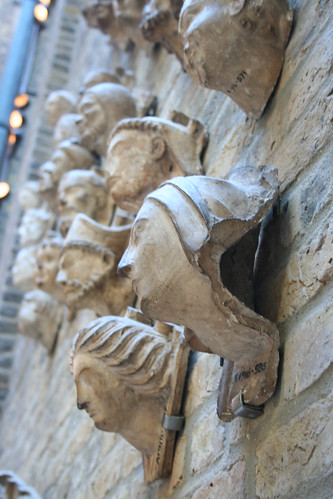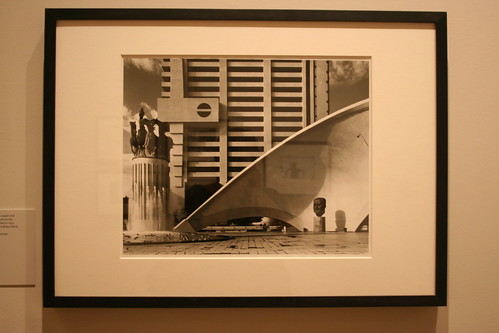Another day, another middle-aged straight man pretending to be a lesbian on the Internet
Anyone who has spent any time in an online community with a persistent membership, especially one with a substantial female cohort, has met a middle-aged man pretending to be a young lesbian. A very cute, out, sexually experimental, vociferous lesbian. Probably with a motorbike, a tormented relationship with her family and long, flowing hair. Looking back, I can remember about four of these guys over the years that I participated in discussion forums at university, usenet, listservs, Yahoo (then Google) groups, blogs, facebook, twitter. Wherever there is online community, there will be ‘pseuds’; and along with ‘dying of cancer‘, ‘tormented young lesbian’ seems to be a favourite story to adopt.
My most notable encounter of this ilk was with one Lisa Jain, on the late, great, estrolist mailing list. “Lisa” was, of course, young, rode a motorcycle, had long red hair and a tormented relationship with her family and an older girlfriend, and wrote (forgive me), convincly mediocre adolescent poetry under the name Starpoet. She also wrote for Scarleteen, whose editor, Heather Corinna, was likewise a member of estrolist. I am not sure of the details, but I believe it was Heather who discovered that “Lisa” was in fact a middle-aged man living in suburbia, with daughters the age “she” claimed to be. In fact, the pictures of herself that “Lisa” had shown the list were of a friend of “her” daughter’s, which, when coupled with the fairly explicit discussions of sex on the mailing list, made many of us shudder. “Lisa” was summarily removed from the mailing list, and, although the internal discussion continued for some time, the whole incident was chalked up as yet another relatively harmless case of “boys will be, well, something other than boys”.
Except that this behaviour is so common as to have become something of a trope, and that is a problem. It’s not simply pretending to be something you’re not – it’s pretending to take on cultural and personal experience and significance that you have not earned. No matter how much research you may have done, you cannot fairly represent someone else’s experience, and on the social internet, where personal experience is currency, you are stealing someone’s currency, their voice.
Feminism has always been about claiming one’s voice, the right to experience one’s life and express that experience to others. Women speaking out about rape, about sex, about love, about life are the cultural lifeblood of feminism, from Charlotte Perkins Gilman to Eve Ensler. Any man who takes on the cloak of femininity or feminism usurps that voice and distorts the message for everyone listening.
In pretending to be a lesbian, a heterosexual man is belittling the experience of, and denying a voice to, women and gay people: he is taking on a double-layer of deception and usurping two peoples’ right to speak for themselves. Many straight men seem to think (as did Mr Lisa Jain), that by having sexual encounters with women (or watching a lot of girl-on-girl porn) they know what it is like to be a lesbian, as though sexual identity is limited to the expression of sexual behaviour, and as though female identity ends with the genitalia.
In pretending to be a Syrian (in this case), MacMaster has also taken on years of blackface, of offensive portrayals of “others” by white people, and of “orientalism“. He is supposedly a graduate student in Middle-Eastern studies – I can’t help but think he should fail his course on the grounds that he has failed to comprehend even three words of Edward Said’s writings.
One can’t help thinking, of course, that the fetishisation of lesbianism is the main reason for this kind of online deception, but I suspect that would be wrong. There are plenty of places online to play out one’s purely sexual fantasy of being a young hot college co-ed getting it on with your dormmates (to use the most obvious stereotype of a porn movie), in words, or images. Why go to the hassle of creating a whole identity, stealing other people’s pictures, writing backstory and engaging with other members of the community for a purely sexual fantasy? Estrolist was mostly populated by young-ish middle-aged educated feminists, talking about work, family, clothes, movies, children, politics, gender, books: that’s a lot of chit-chat and theory to wade through to get to the sexy stuff. Likewise, although much has been made of Tom McMaster signing up for a dating site and flirting online with other lesbians (at least one of whom turned out tobe another middle-aged straight man – the final straw that guarantees McMaster will forever be reduced to a punchline), it is apparent that he spent most of his time online constructing the other aspects of Amina’s life (and let’s be clear, despite the chorus of “I always knew there was something wrong with her”, he did a fair enough job of it to fool a number of people).
So why? Is the life of a middle-aged man so boring and desperate that it necessitates the construction of a whole new identity: one entirely different from the existing one, with one constant – sexual attraction to women? Is it for the same reasons that wealthy college kids in the eighties in the UK pretended to be poor, to take on some of the ‘cool’ aspects of working-class life as depicted in popular culture? There is no doubt that lesbianism (or the performance of lesbianism) is becoming more common in popular culture, from the L-Word to Katy Perry, but so is the depiction of crime in African-American communities, and you don’t see stories about middle-aged white women pretending to be hardened “gangstas” on line.
I tend to see this behaviour as a kind of jealous temper-tantrum: “people are paying attention to someone else, and I am going to take that attention away from them by pretending to be something more interesting and unusual than they are”. It is juvenile and selfish, and, in that way, not dissimilar to people pretending to die of cancer online. In retrospect, looking at the listserv content, people could see that at a predictable interval of the discussion moving on to someone or something else, “Lisa” would suddenly pop up, in virtual tears, at some new torment in her life, and we would all gather round, patting her on the back and saying there-there.
However, I don’t really care why McMaster, or “Lisa” did it. The co-opting of another’s experience for personal gain, especially by a member of the dominant cultural or ethnic group is offensive, and disturbing. McMaster may be a joke, and that is all he deserves, the worry is that the next genuine person to tell their story on the Internet will also be dismissed as a joke, thanks to McMaster’s indulgent, selfish little role playing game. He has had his fun, and cried wolf on behalf of a village he doesn’t even live in, and now everyone else is less safe.
One hundred and twenty-seven: faces
This is a wall of mediaeval carved faces in the V & A, all gazing at the opposite wall.
One hundred and twenty-eght: windows
At the Victoria and Albert museum.
One hundred and twenty-six: alien
I have always been fascinated by this glass object that hangs in the main atrium of the Victoria and Albert Museum in London. I don’t know much about it, but it is so weird and compelling that I can’t resist. It wasn’t this dark – I was tryig to catch the flare of light around the sides of it.
One hundred and twenty-four: newsroom
Well, so much for the paperless office. This is the desk of an unidentified reporter, and well, it looks like many other reporters’ desks that I’ve seen over the years. I am an anomaly in that I can usually see my keyboard, mouse and phone, and can even find a place for my coffee cup.
One hundred and twenty-five: picture-in-picture
This is a picture of a picture by David Goldblatt of Strijdom Square in Pretoria, now known as something else. JG Strijdom was one of the several people credited with being the “father of apartheid”, and this square in central Pretoria was one of the many examples of an architectural style that can only be described as ‘brute Afrikaner’. When we were kids we spent some time in this square, being as it was, close to where we had speech lessons (do kids still take speech lessons – learning how to recite poetry and read?), and I remember waiting here many times for Elizabeth’s class to finish so we could go home.
I also remember my mother being very entertained by the fact that one year after rag week a group of students had planted empty beer bottles in Strijdom’s ears.
At some point in the late nineties, the parkade under Strijdom Square collapsed, sending old JG’s head plummeting into the depths. A more fitting end I cannot imagine.
One hundred and twenty-three: Holland Park
Holland Park is one of London’s many parks, and one of my favourite. It’s not hugely touristy, not being close to major attractions, or famous in and of itself, so it tends to have people just kind of hanging out, exercising, picnicking, playing frisbee, just doing stuff. It’s a great place to people-watch, in fact.
One hundred and twenty-two: ummmm, ok
This is the unlikely sight that greets visitors to the office of both The Independent newspaper (as well as its sister publication, “i” and the London Evening Standard), along with The Daily Mail (and Metro). That’s the esteemed Lord Northcliffe under the fountain, the man who invented the tabloid newspaper, and that’s a couch shaped like a giant pair of lips.
OK.
One hundred and twenty-one: hamentaschen
I’m baking today. It’s a bank holiday, and tomorrow there is a three-hour-long academic meeting. Way back when, I promised my colleagues that if they distrubuted my survey request to all of their former students, I would bake them cookies for this meeting. I don’t know whether they have done that, but since then I’ve also had to deal with the chaos of getting people to double-mark sixty project modules, and while it is part of everyone’s job, I do feel like I’ve been asking favours of people, so I figured I’d bake cookies. These are hamentashcen, which I love, although filled with plum jam, not poppyseeds, this time.








